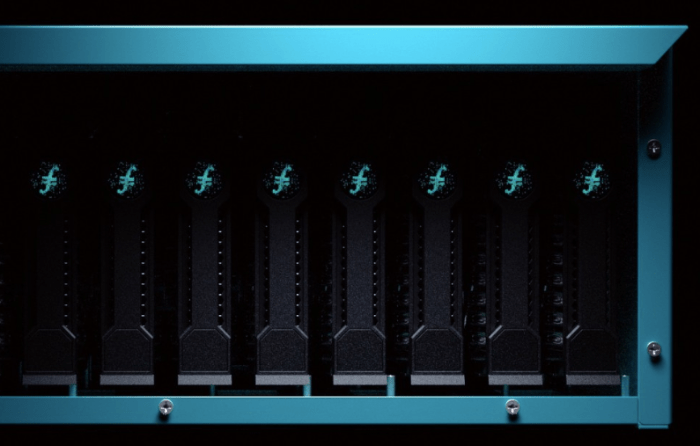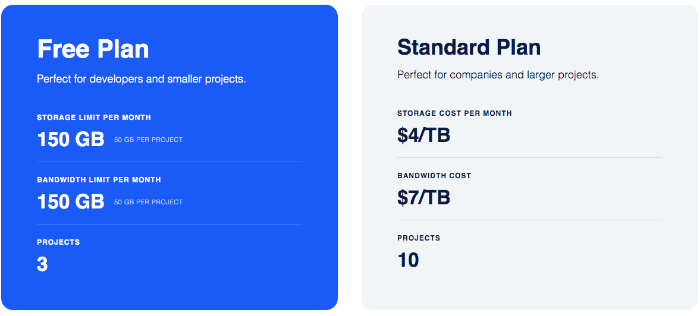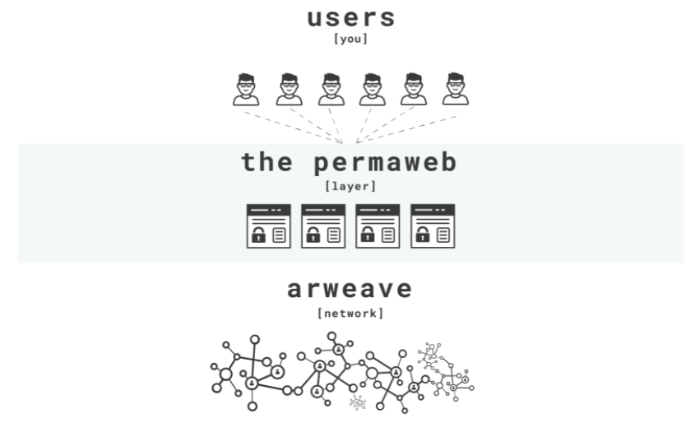Top 5 Decentralised Storage Network Tokens

Filecoin (FIL)
Filecoin is a peer-to-peer network, complementary protocol, cryptocurrency and open-source cloud storage marketplace. The blockchain is based on proof-of-replication and proof-of-spacetime. Filecoin makes it possible to store files on the internet and provide data storage through the introduction of a mechanism that incentivises users that are responsible for maintaining the network. Anyone can participate in the storage and data retrieval open markets that Filecoin facilitates.
The Filecoin ecosystem works in such a way that users pay in order to be able to store their files on storage miners which are essentially computers that are responsible for file storage and proving that proper file storage has taken place. The availability of storage and storage price is not controlled by a single entity. Users have the ability to choose between cost, redundancy, and speed through a simple process of simply selecting the miner whose storage offer is best suited to their storage requirements.

Source: Filecoin
In the Filecoin network, retrieval miners or nodes compete to cater to clients by providing them with data efficiently. Storage miner nodes on the other hand compete for contracts to provide storage to clients for an agreed duration. When a deal is agreed on between the storage miner and the client, the former holds the latter’s data in a sector and seals it in order to produce a distinguishable copy of that sector’s data. The storage miners are consequently compensated in FIL by their respective clients in the form of deal fees. In addition, miners can also receive block rewards by mining blocks.
FIL is the native cryptocurrency of the Filecoin protocol. Storage miners can earn units of FIL for simply storing files. FIL tokens can be traded on exchanges such as , Gemini, Binance, Huobi and many others.
BitTorrent (BTT)
The BitTorrent protocol enables trustless file exchange. In collaboration with the TRON Foundation and BitTorrent Foundation, BitTorrent introduced BTT – the cryptographic token which is a TRC-10 utility token issued on TRON. The token alongside the protocol is meant to create a token-based economy for networking, bandwidth and storage usage. Decentralised applications (DApps) powered by BTT include BitTorrent File System, BitTorrent Speed, and DLive.
By introducing token-based optimizations to the existing BitTorrent protocol, the value of shared bandwidth can be captured by network participants. BitTorrent intends to extend the use of the protocol through the provision of a distributed infrastructure platform, thereby laying foundations for a decentralized web that third party developers can utilise to implement augmentations and create a broad-based value ecosystem.
BTT tokens can be traded on Binance, OKEx, Huobi Global, and FTX.
Storj (STORJ)
Storj is described as an open-source, peer-to-peer and encrypted cloud storage platform that uses a decentralized network of nodes to host user data. Users who are able to provide terabytes of cloud storage space can essentially become a node in the network and receive Storj tokens as rewards.
Storj’s Decentralized Cloud Storage (DCS) is said to be more private, secure and affordable than conventional centralised cloud storage alternatives. Storj DCS also makes costs predictable since there are no hidden fees. Users have the option to pay for fees using Storj tokens or normal credit cards.

Source: Storj
Storj has multi-region high availability, trustless architecture, default encryption and edge-based access controls. This makes it more secure and minimizes data breach risks since only the user is able to grant permission to access to files, giving the user full ownership and control of their data.
Storj are ERC-20 tokens issued on the Ethereum blockchain. The tokens can be traded on exchanges such as Kraken, Binance, Crypto.com, Gemini, FTX, OKEx, Huobi and others.
Arweave (AR)
Arweave is described as a decentralized storage network that backs data with sustainable and perpetual endowments that enables users and developers to store data immutably.
The permaweb is built atop Arweave’s ‘blockweave’ which is effectively a modified version of blockchain technology which makes use of a modified version of proof-of-work called proof-of-access consensus algorithm whereby each block links to the one prior but also to another random previously mined block. Arweave asserts that it incentivizes miners to store more data since there’s a need to access random previous blocks in order to add new ones and receive the AR token rewards.

Source: Arweave
AR tokens can be traded on various exchanges such as Huobi, Bilaxy, Hoo and others. Arweave has received backing from the likes of Coinbase Ventures, Andreessen Horowitz, Union Square Ventures and Multicoin Capital.
Holo (HOT)
Holochain is an open-source framework for building peer-to-peer secure applications and developing DApps that does not require the use of blockchain technology. Holochain provides a distributed database and is not dependent on servers but rather enables apps to connect user devices directly on a secure network. Holochain makes it possible for users to access self-owned data while having peer accountability. App developers can make cost savings on cloud hosting since Holo makes locally installed software available while ensuring that the redundancy of cloud software is maintained. Each Holochain app creates its own encrypted peer-to-peer network between users which means that communications cannot be interfered with or shut down.
HoloFuel is what facilitates The Holo network since it acts as an accounting system for paying hosts for their services. HoloToken (HOT) is the ERC-20 token that will be redeemable for HoloFuel. A fee is charged on HoloFuel transactions which means that Holo’s revenue model is correlated to the growth in applications and hosts on the network. HOT can be traded on exchanges including Binance and several others.



